In the rapidly evolving landscape of healthcare, technology plays a crucial role in improving patient care, streamlining operations, and enhancing overall efficiency. From electronic health records to telemedicine platforms, healthcare tools are transforming the way medical professionals deliver services.
In this article, we’ll explore some of the best tools for healthcare that are revolutionizing the industry and making a significant impact on patient outcomes and healthcare providers’ workflows.
Freed
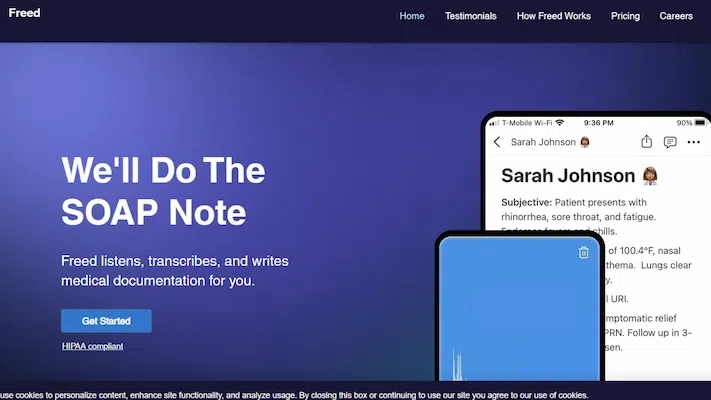
Freed is a healthcare platform that focuses on patient engagement and communication. It offers tools for appointment scheduling, reminders, and secure messaging, enhancing the patient experience and improving communication between patients and healthcare providers.
Key Features and Capabilities:
- Appointment scheduling and reminders
- Secure messaging for patients and providers
- Patient education resources
- Telehealth integration
Real-world Use Cases:
- Improving patient adherence to appointments
- Enhancing communication between patients and providers
- Streamlining administrative tasks for healthcare staff
DeepScribe
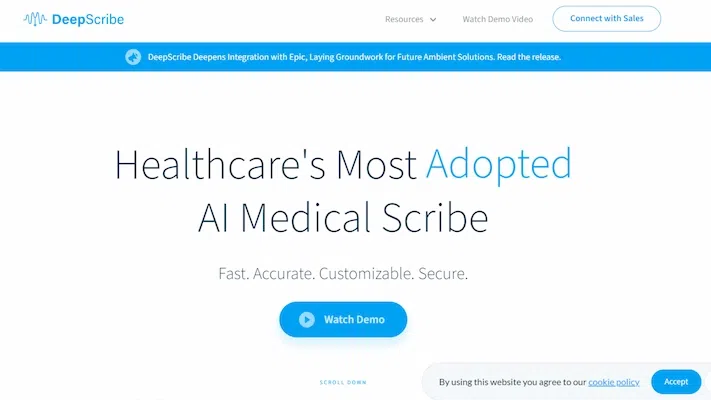
DeepScribe is an AI-powered medical transcription tool that converts patient-doctor conversations into accurate clinical notes. It helps healthcare providers save time on documentation, reduce errors, and focus more on patient care.
Key Features and Capabilities:
- Speech-to-text transcription
- Integration with electronic health records
- Customizable templates for clinical notes
- HIPAA-compliant data security
Real-world Use Cases:
- Streamlining medical documentation processes
- Improving accuracy and efficiency in clinical note-taking
- Enhancing patient-doctor interactions by reducing administrative burden
Augmedix
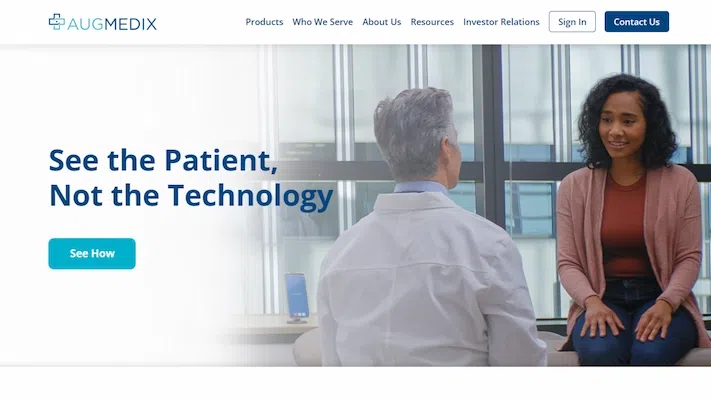
Augmedix is a platform that leverages Google Glass technology to provide real-time clinical support to healthcare providers. It allows doctors to access patient information, record notes, and communicate with specialists hands-free, enhancing productivity and patient care.
Key Features and Capabilities:
- Hands-free access to patient information
- Real-time clinical support
- Documentation assistance
- Integration with electronic health records
Real-world Use Cases:
- Improving doctor-patient interactions
- Reducing administrative burden on healthcare providers
- Enhancing efficiency and accuracy in clinical documentation
Suki
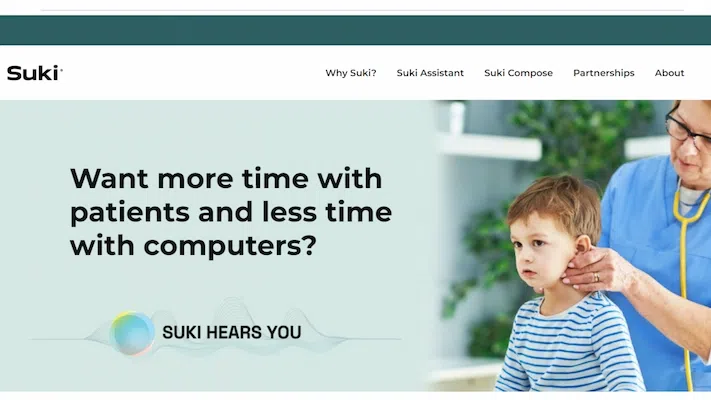
Suki is an AI-powered digital assistant designed to help healthcare providers with clinical documentation and administrative tasks. It uses voice recognition technology to create accurate and detailed patient notes, saving time and improving workflow efficiency.
Key Features and Capabilities:
- Voice-enabled clinical documentation
- Customizable templates for notes
- Integration with electronic health records
- HIPAA-compliant data security
Real-world Use Cases:
- Streamlining medical documentation processes
- Reducing physician burnout by automating administrative tasks
- Improving accuracy and completeness of patient records
Phreesia
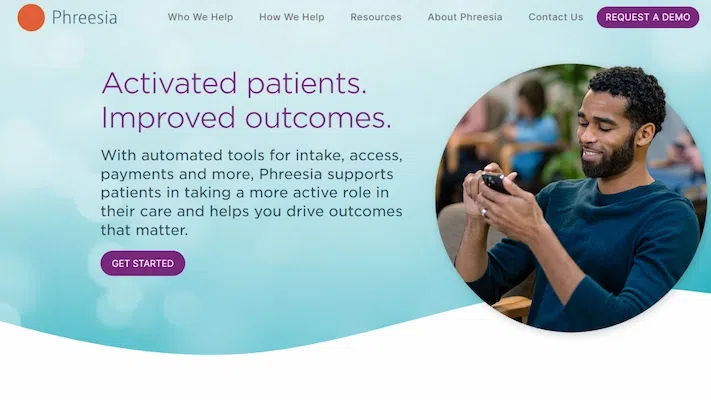
Phreesia is a patient intake platform that digitizes the registration process, streamlining patient check-ins, insurance verification, and payment collection. It helps healthcare practices improve efficiency, reduce paperwork, and enhance the patient experience.
Key Features and Capabilities:
- Digital patient registration
- Insurance verification and eligibility checks
- Payment processing and collection
- Customizable patient intake forms
Real-world Use Cases:
- Reducing wait times for patients
- Improving data accuracy and completeness
- Enhancing patient satisfaction and engagement
Kyruus
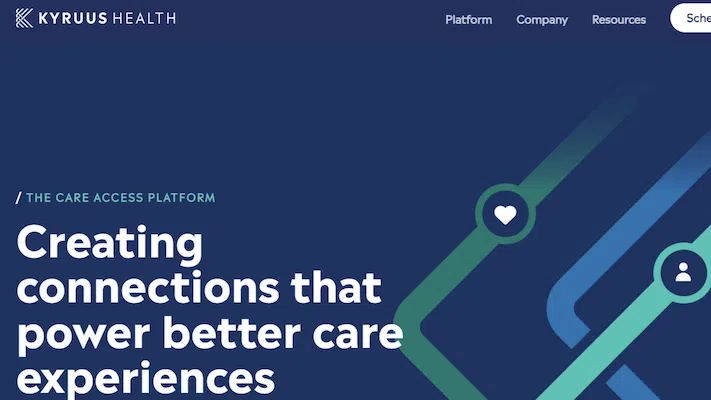
Kyruus is a provider search and scheduling platform that helps patients find the right healthcare providers based on their needs and preferences. It offers tools for online appointment booking, provider directories, and referral management, improving access to care and patient satisfaction.
Key Features and Capabilities:
- Provider search and scheduling
- Online appointment booking
- Referral management
- Provider directory and profiles
Real-world Use Cases:
- Enhancing patient access to care
- Improving patient-provider matching
- Streamlining referral processes and care coordination
Nuance
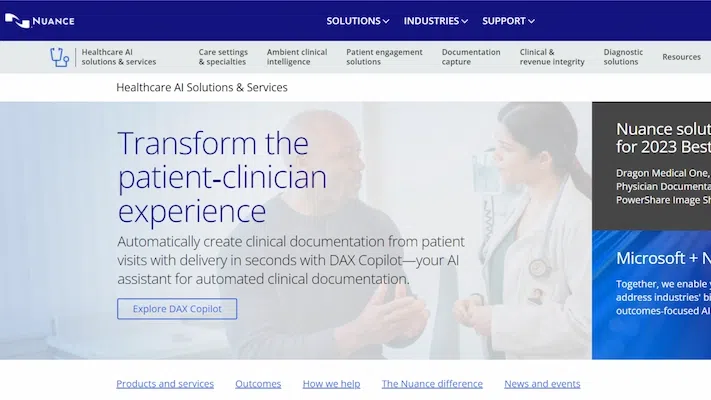
Nuance is a healthcare technology company that offers solutions for clinical documentation, speech recognition, and imaging diagnostics. Its tools help healthcare providers streamline workflows, improve accuracy, and enhance patient care delivery.
Key Features and Capabilities:
- Speech recognition for clinical documentation
- Imaging diagnostics and analysis
- Integration with electronic health records
- AI-powered solutions for healthcare
Real-world Use Cases:
- Accelerating clinical documentation processes
- Enhancing diagnostic accuracy and efficiency
- Improving communication and collaboration among healthcare teams
Conclusion
Healthcare tools are essential for modern healthcare delivery, enabling providers to deliver high-quality care, improve patient outcomes, and enhance operational efficiency. By leveraging innovative technologies such as AI, speech recognition, and patient engagement platforms, healthcare organizations can transform the way they deliver care and interact with patients. The tools mentioned in this article represent a snapshot of the diverse and impactful solutions available to healthcare providers today.
